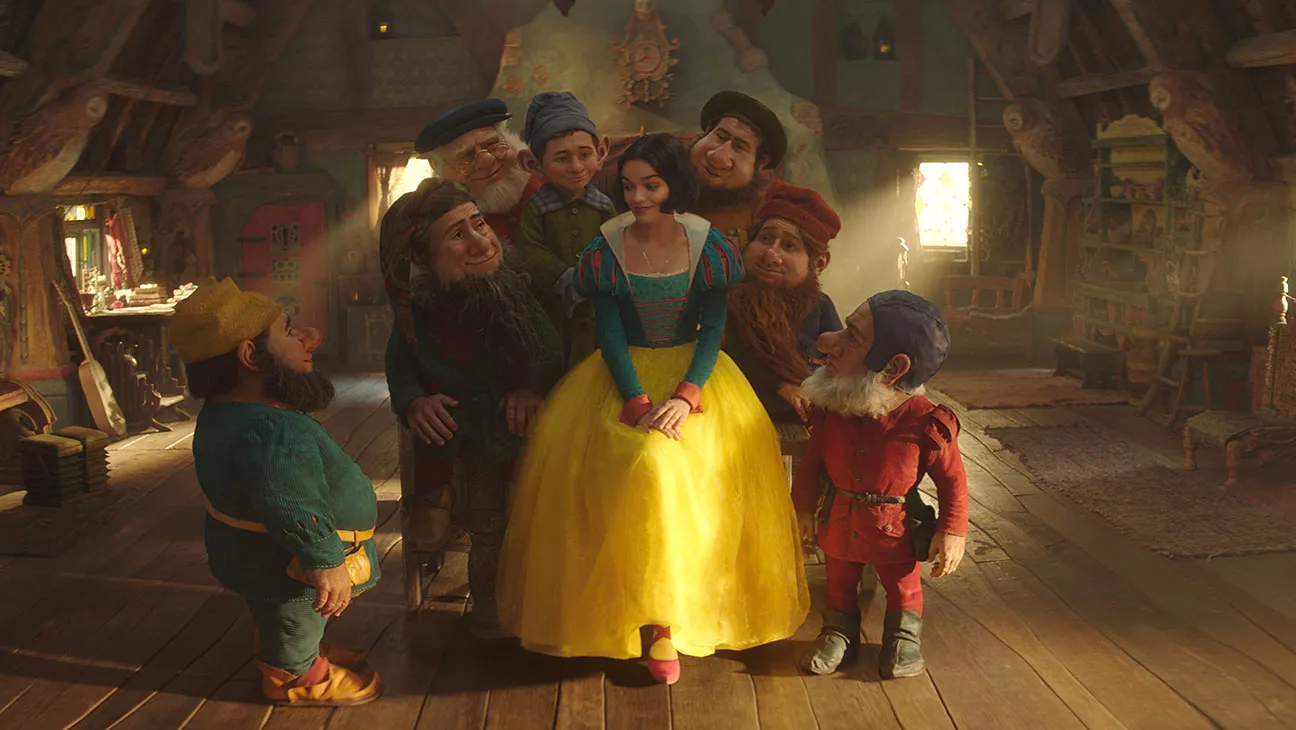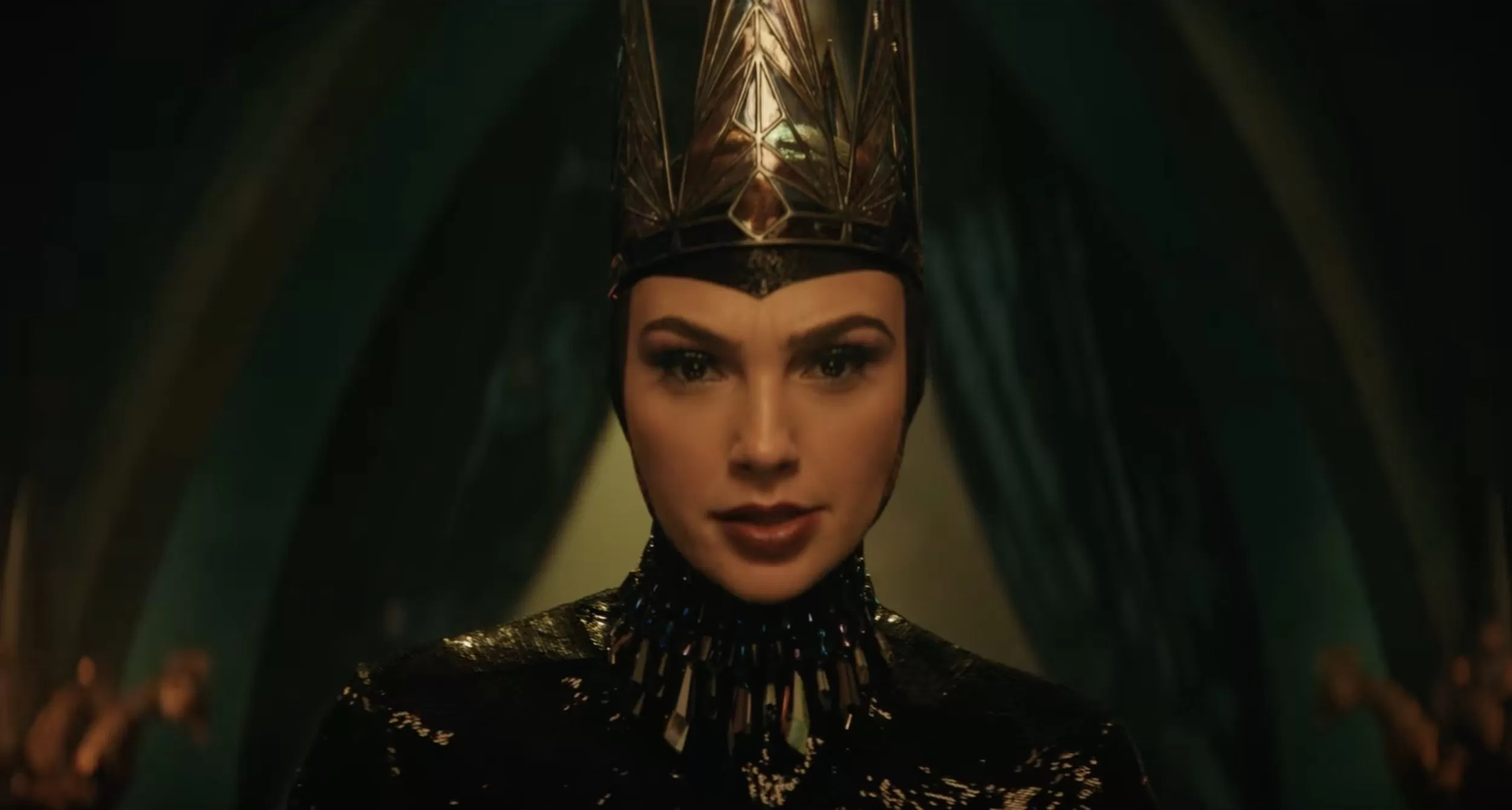The live-action Snow White offers a modern twist on the beloved 1937 animated classic, retaining many elements while expanding upon key themes. This reinterpretation showcases a fresh approach, with a deeper focus on Snow White’s journey and her growth as a leader. The ending, in particular, introduces notable differences, especially regarding Snow White’s rise to power and her role in the kingdom, compared to the original story. Let’s look into how the new ending reinvents the classic narrative.
Snow White Ending Explained
In this live-action remake, Snow White doesn’t just survive the Evil Queen’s wrath—she rises to become a strong and beloved ruler. While the poisoned apple incident mirrors the original, Snow White’s path afterward is far more empowering. After she is awakened by her true love’s kiss, Snow White doesn’t just return to the castle; she takes charge. In a dramatic public confrontation, she faces the Evil Queen, ultimately claiming her position as the queen of the land. This conclusion highlights Snow White’s leadership qualities and her connection with the people, who rally around her as a fair and just ruler.

The demise of the Evil Queen has undergone significant changes. In the original film, the Queen dies in a climactic fall after attempting to ambush the dwarfs. However, the live-action version introduces a more dramatic and magical death. When Snow White confronts the Queen, she shatters the enchanted mirror, causing the Queen to crumble into ash. This death, however, hints at a deeper magical world. As the Queen’s ashes are absorbed into the mirror, the audience glimpses a dark void behind the glass—a mysterious, otherworldly space that briefly opens before being sealed again. This unsettling moment suggests that the Queen’s death may not mark the end of her magical influence, adding an eerie layer to the narrative.
A Bigger Role for Snow White in the Climax
The live-action Snow White departs from the animated classic by shifting the agency in the final act. In the original, Snow White is passive during the climax, only awakened by the Prince’s kiss. In this updated version, Snow White actively confronts the Evil Queen and plays a critical role in her downfall. The Evil Queen doesn’t fall to her death through an accidental mishap; instead, Snow White’s courage and resolve lead to the Queen’s demise. This reimagining emphasizes Snow White’s growth throughout the film, giving her a more active role in her own fate and the fate of her kingdom.
In both versions of the tale, Snow White’s beauty is central to the Queen’s jealousy, but in the live-action remake, the meaning of “fairest in the land” expands beyond physical appearance. While the Evil Queen’s obsession with beauty remains a driving force in her actions, the film also explores the notion of fairness in terms of character and leadership. Snow White’s parents taught her to be a fair and compassionate ruler, qualities that endear her to the people and help her unite the kingdom. By the end of the film, the phrase “fairest in the land” refers not just to Snow White’s external beauty but to her inner qualities as a leader, making her a more complex and admirable protagonist.
The Dwarfs’ Role and Growth

While the dwarfs are secondary characters, the film ensures they aren’t mere comic relief. The dwarfs, who are magical creatures living in isolation, gradually become an integral part of Snow White’s story. They transition from being distant figures to active participants in the kingdom’s future. In a pivotal moment, Dopey speaks for the first time, showing his support for Snow White and her quest to overthrow the Queen. Furthermore, Dopey’s arc is expanded when it’s revealed that he has been narrating the story all along, adding a layer of depth to his character. By the end of the film, the dwarfs join the kingdom, signifying their reintegration into society.
A key theme in this live-action version of Snow White is the idea of “fairness” in leadership. Snow White’s empathy, compassion, and commitment to justice make her an ideal ruler. Unlike the Evil Queen, who rules through fear and vanity, Snow White’s kindness unites the kingdom and earns the trust of her subjects. This contrasts with the Queen’s cold, calculating nature, highlighting Snow White’s strength as a leader not through physical prowess, but through her ability to inspire and unite others. Her growth into a fair ruler is not just a personal victory but a victory for the people she governs.
A Satisfying Conclusion with a Bright Future
The film concludes with a hopeful, celebratory note. Snow White’s rise to power and her eventual triumph over the Evil Queen represent the restoration of peace and fairness to the kingdom. The dwarfs, once isolated, now celebrate alongside Snow White and her people, solidifying their place in the community. The final musical number, reminiscent of the joyful tune from the beginning, echoes the film’s theme of unity and prosperity. Snow White’s kingdom is set on a path of healing, and the characters are finally free from the shadow of the Evil Queen.

While the film provides a satisfying conclusion to Snow White’s journey, it does leave room for future stories. The movie hints at a rival kingdom to the south, potentially setting up a new conflict for Snow White as she assumes the role of ruler. Additionally, the mysterious magic behind the Queen’s mirror could be further explored, offering a look into a larger magical world. These elements suggest that there is more to discover in Snow White’s universe, although the film itself does not end on a cliffhanger. The conclusion is definitive, with Snow White firmly established as a compassionate ruler.
The Deeper Message of Snow White’s Live-Action Remake
At its core, the live-action Snow White emphasizes the importance of empathy and fairness in leadership. Snow White’s journey is not just about defeating an evil ruler but about proving that true strength lies in kindness and understanding. Her ability to unite people through compassion makes her a more effective leader than the power-hungry Evil Queen. This message is central to the film’s themes, as it suggests that a ruler’s worth is not determined by their beauty or magical abilities, but by their ability to care for others and create a fair society.




